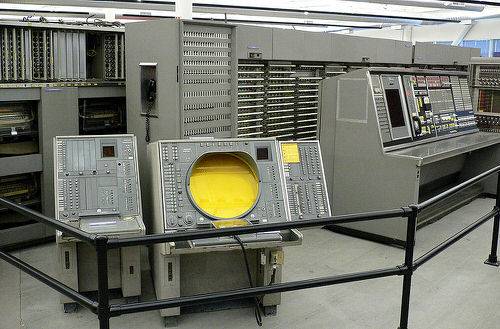
Technology journalist Robert Cringley thinks IBM is doomed because it just sold its Intel server business to Lenovo. On the contrary, this may be the clearest indication that IBM may thrive. After all, given the trend toward cloud and build-your-own-datacenters, has there ever been a worse time to be selling enterprise servers?
“An Act Of Desperation For IBM”
Let’s be clear. Every incumbent hardware company is under the gun as low-margin cloud businesses boom. Amazon puts every hardware company under pressure and is even causing fits for those trying to make a business of selling private cloud technology.
Yet Robert Cringley, a longtime IBM critic, believes IBM “has sold the future to invest in the past,” referring to its mainframe business, which it retains. He goes on to suggest that, “little servers are the future of big computing” and that, “IBM needs to be a major supplier and a major player in this emerging market.”
Yes and no.

It seems clear that selling big hardware like mainframes is a dying business. Yes, enterprises will continue to buy it, but if the last few earnings calls from IBM, Oracle and their peers are any indication, big hardware is a difficult proposition in the age of cloud.
Not that the big incumbents are giving up on big hardware. As reported by ReadWrite in November 2013, Oracle CEO Larry Ellison believes the future datacenter will include purpose-built, big hardware and low-end commodity servers, with the latter constituting the core of enterprise workloads. But that core will not powered by Oracle. Or IBM. Or any mega-vendor.
The problem is that these legacy server companies are not buying into that “purpose-built,” insanely expensive hardware, either. Hence, while CA Technologies may like to pretend that the mainframe is an integral part of the “data center of the future,” as a recent Wall Street Journal advertisement proposes, IT buyers aren’t buying.
Why Not Sell “Little” Servers?
If big hardware is struggling, why shouldn’t IBM, Oracle and other enterprise incumbents trade in commodity servers? In large part, they can’t. Not while being profitable anyway.
The commodity server business has been further commoditized by the rise of white box server vendors and open-source datacenter initiatives like Facebook’s Open Compute project. As Accenture writes, “Facebook’s Open Compute Project is accelerating the adoption of infrastructure innovations by sharing those breakthroughs freely.” For incumbent server vendors, “freely” is the last thing they want to hear.
It may be on the verge of getting even worse. According to McKinsey & Company, in 2014 enterprises need to increase their emphasis on private cloud deployments:
Many large infrastructure functions are experiencing “cloud stall.” They have built an intriguing set of technology capabilities but are using it to host only a small fraction of their workloads. It may be that they cannot make the business case work due to migration costs, or that they have doubts about the new environment’s ability to support critical workloads, or that they cannot reconcile the cloud environment with existing sourcing arrangements. Over the next year, infrastructure organizations must shift from treating the private cloud as a technology innovation to treating it as an opportunity to evolve their operating model.
If this happens, and there are good reasons to believe enterprise developers will continue to skip the private cloud in favor of public cloud options like Amazon Web Services, it won’t serve enterprise hardware companies very well. With increasing interest in open datacenter designs, enterprises can utilize private clouds with low-end, white box vendor servers rather than higher-cost, name-brand servers from the likes of IBM.
Which, presumably, is one big reason IBM sold its commodity server business.
The Future Of Hardware Is Software
Venture capitalist Marc Andreessen argues that “software is eating the world.” Along the way, it’s also eating hardware. At least, the fancy name-brand hardware that used to mint billions for IBM and its peers.
This is what Cringley misses. He blithely suggests of IBM that, “they are selling a lower-margin business where customer are actually buying to invest in a higher-margin business where customers aren’t buying.” This is true. But it doesn’t lead to his conclusion: “IBM needs to learn how to operate in a commodity market. IBM needs to become the lowest cost, highest volume producer of commodity servers.”
This is like suggesting that IBM needs to slit its right wrist instead of its left wrist. In either market, IBM is going to lose. The difference is that it can milk the high-margin, fading business for years as it tries to transform itself into a commodity cloud computing business. With the acquisition of Softlayer, it is well on its way, though the journey will be brutally painful.
Which, I suppose, is how I’d describe any company trying to make a living peddling hardware. Or cloud, for that matter. The cloud is compressing margins on all hardware businesses, even as Amazon forces would-be cloud competitors into a game of low-margin commodity cloud pricing. For hardware companies, it seems to be a lose-lose proposition. But it may be the only option they have.









